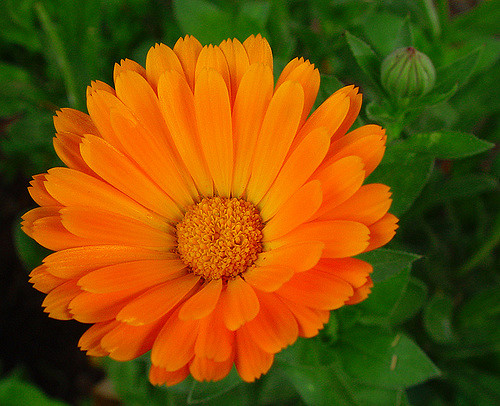a.k.a. Calendula officianlis
This versatile, herbaceous plant of the small genus Calendula, is in the Asteraceae (Aster) family. It can be used externally and internally. Calendula is a very common plant in the garden and is typically referred to as "Marigold" or "Pot Marigold". The flower petals contain high levels of antioxidants in the form of flavonoids and carotenoids. Calendula contains beta-carotene and lutein which the body absorbs and converts into vitamin A. It also contains fatty acids with the two main being calendic and linoleic acids. These fatty acids have strong anti inflammatory properties. Calendula encourages wound healing as it helps increase blood flow and oxygen to the infected area. Other attributes help improve skin firmness and assists with alleviating hot flashes. Calendula fatty acids have been studied to be effective fighting pathogens, candida symptoms, antibiotic resistant bacteria and carcinogenic activity. It activates lymphocytes which fight foreign and infectious invaders to the body. This resilient flower is still being studied for possible additional benefits.
